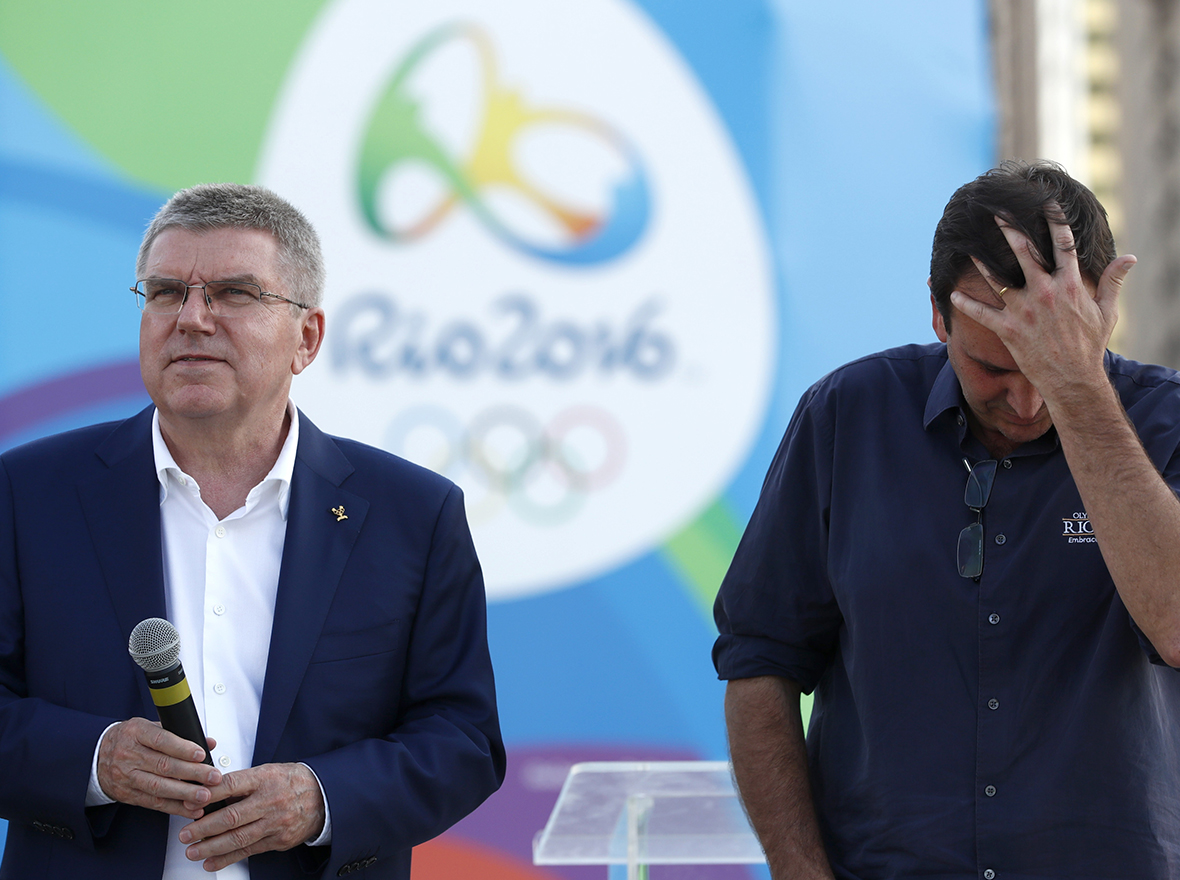As the games begin, is brazil headed forward or over a cliff? Few countries (not facing civil war or political collapse) have endured the run of horrible news that has plagued Brazil over the past two years. Here's Latin America practice director João Augusto de Castro Neves on Olympic fallout, magic bullets, and the prospect of light at the end of the tunnel.
Willis Sparks: Brazil has gone through profound political turmoil in recent months. Dilma Rousseff will probably be impeached by the end of August. An interim president must worry that the same corruption scandal that has nearly paralyzed the country will threaten his ability to get anything done. Will the Rio Games make a difference in Brazilian politics? If so, what sort of difference?
João Augusto de Castro Neves: For most Brazilians, the Rio Olympics is not about medals. It's about money. In particular, the monumental amount of money diverted from much-needed public services toward construction of sporting venues, the launch of marketing campaigns, and investment in infrastructure of questionable long-term value. Then there's the corruption. And this only two years after another spending spree generated by another major sporting event, the World Cup.
It's not a coincidence that, in recent years, Brazil's relatively calm political landscape has been rocked by waves of protests involving millions of people voicing their anger at an unresponsive—sometimes irresponsible—political class. Though these events brought the promise of economic prosperity and improved infrastructure, Brazilians instead got nothing short of a “lost decade” in two years of recession and a herd of shiny stadia (yes, as in white elephants) with little to no infrastructure around them. Unfortunately, the World Cup and Olympics did not bring the country great power status, as some Brazilian leaders enthusiastically promised.
If there's a lesson to be learned from all this, it's that “jumping doesn't make you taller.” Social and economic development requires long-term planning and sharper scrutiny of public spending. The hope now is that public protests will prevent politicians from making the same mistakes in the future.
Sparks: What's the single most important thing that Brazil's president and congress can accomplish over the next 12-18 months to get Brazil back on track?
Castro Neves: There is no silver bullet that can resolve Brazil's crisis, but at the core of the current problems is a political system that tends to consume huge amounts of resources. The constant need to build multiparty coalitions to win elections, and then to maintain them by keeping everyone happy, is a primary driver behind the long list of corruption scandals of recent years. These scandals are hardly new in Brazil, but over the past few years, they've grown in scope.
Aside from the much-talked-about need for economic reforms—many of which are underway—the challenge for Brazil's leaders will be to make the country's political system more efficient and responsive to shifting public demands. A political reform that reduces the numbers of parties and makes campaigns less expensive, for example, would be a useful step toward reducing the incentives for corruption that have plagued every government for the past three decades.
Sparks: Some say Brazil's political system has become almost entirely dysfunctional. Others say the Lava Jato corruption investigation is exactly the crisis that Brazil has long needed to take next steps to become a more economically dynamic and politically stable country. Looking out 3-4 years, are you an optimist or a pessimist on Brazil's future?
Castro Neves: Brazil tends to provoke extreme reactions from pundits and investors. The job of a good analyst, therefore, usually entails moderating the excessive pessimism or optimism. For a country as complex as Brazil, the truth almost always lies somewhere in the middle.
The dysfunctionality of Brazil's political system is well-known. Policymaking is a cumbersome and costly process. A sequence of corruption scandals in the last two decades is proof of the problem. But dysfunctionality has its benefits. The many institutional and political checks and balances turn policymaking into a slow and arduous process, but these same features tend to filter out radical (sometimes reckless) policy ideas.
That said, despite all the current problems, Brazil continues to be a vibrant democracy with strong institutions, one situated far from the hottest geopolitical hotspots, with a more robust middle class than ever before (despite the recent recession), and with abundant natural resources. That's not a recipe for failure.

